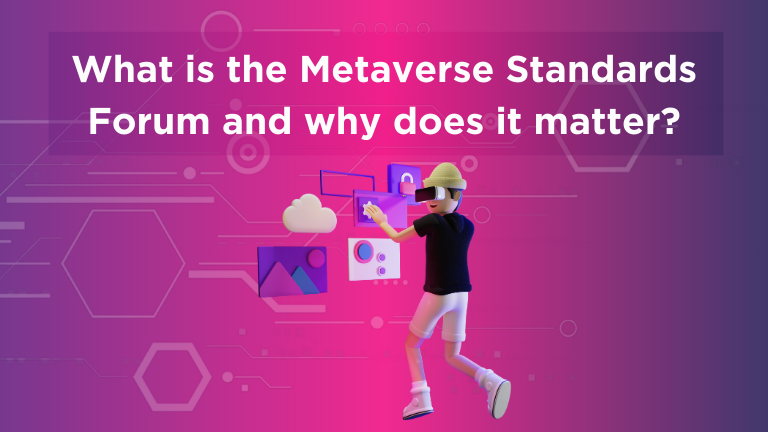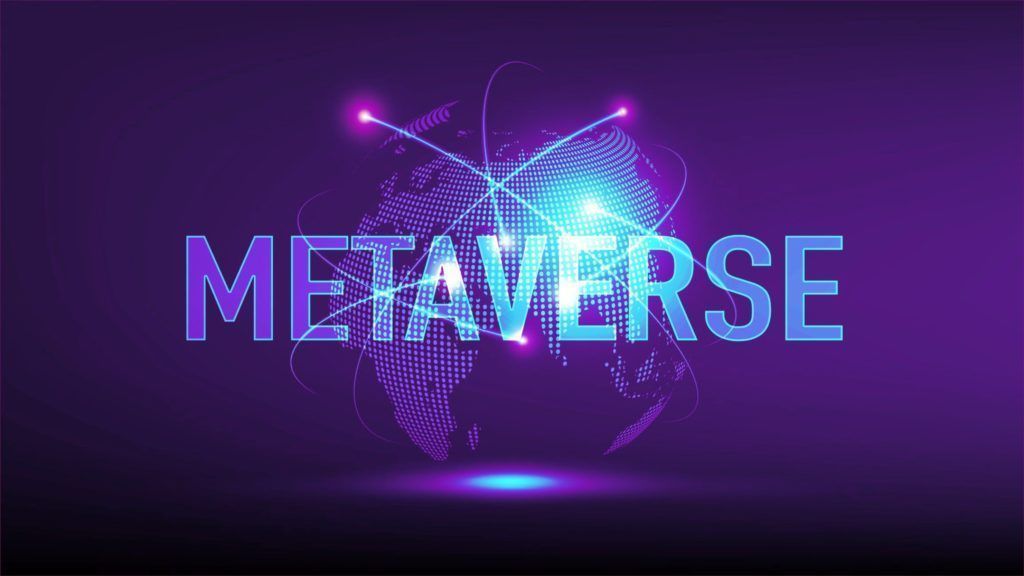
The Metaverse is revolutionizing the world as we know it. Though still not the most widely understood concept for many, the concept of an “embodied internet”, championed by technology leaders around the world is quickly gaining steam.
The metaverse promises a future where the lines between digital and physical realities are blurred. The concept involves the use of various forms of technology, from XR and AI, to “IoT”, to merge our physical and digital identities. In this new world, we can create and recreate ourselves however we choose, engage in new economies, and connect with communities.
The question is, what implications does this new environment have from the perspectives of ethics, privacy, and security? Is the metaverse truly a safe virtual oasis? Or are there significant issues we need to overcome?
Exploring the Issues with the Metaverse
The metaverse will deliver an unprecedented leap in the way people connect, as well as the way we interact with computer technology.
For companies, the metaverse delivers a unique opportunity to connect with customers in an entirely new way. Through virtual worlds, NFTs, and immersive experiences, brands can reach consumers on another level.
Companies are already capitalizing on the concept to create 3D and immersive experiences for the brands they promote. They’re also using these tools to collect data about their customers. This includes how people interact with websites, to where their gaze moves in a VR simulation.
Clearly, this represents a fantastic opportunity for companies and organizations to learn about their communities. However, the metaverse also raises some important questions about how information should be collected and used. There are many doubts surrounding the safety of this environment. Let’s look at some of the major issues being discussed today.
Privacy and the Metaverse
The biggest concern around the metaverse today has to do with its impact on privacy. Consumers tend to accept privacy policies without reading them in today’s chaotic world. And this trend is likely to continue into the metaverse. This means companies can track a significant amount of information, without us realizing it.
The issue in the metaverse is how much information is available. Most metaverse experiences are built with XR technology, which comes with “tracking” capabilities. Some devices can track body movement, physiological responses, and gaze.
Collecting this information makes it easier for a company to understand their audience. They can determine which kinds of products attract the most attention when you’re walking through a metaverse store in VR. Or a company could collect information about sentiment, and how customers respond to certain interactions.
There’s even the potential to track certain brain waves. BCI (brain-Computer Interfaces) worn like headphones, via smart glasses, or on the wrist will track brain wave patterns and deduce thought processes through machine learning. This opens the door for whole new forms of data to be collected and analyzed. Collecting these brain waves could provide companies with more information than we would like.
If you’re uncomfortable with the idea of companies tracking your actions now, the concept of them being able to see your thoughts, actions, and emotions may be even more concerning!
Identity, Security, and the Metaverse
Identity on the internet is something likely to change significantly with the rise of the metaverse. Many platforms in the digital world today give us a certain level of control over how we showcase our identity. It’s possible to hide behind aliases on sites like Facebook, but how will identity be managed in the metaverse?
The ability of XR solutions to track biometric data as a way of providing access to certain profiles. Tools could mean protecting your identity in the metaverse is more complex. Even if your data isn’t distributed for everyone to see, it will be collected and stored somewhere. This leads to significant concerns regarding security in the case of a data breach.
There’s a threat in the ability to recreate yourself in the metaverse too. People in a metaverse environment could have the freedom to alter their digital avatars to be anything they choose. This could mean that criminals can present themselves as everyday people, and children can pretend to be adults, giving them access to restricted content.
We’ll also need to think carefully about how we defend aspects of our identity in the metaverse. Policies will need to be implemented to manage cases wherein an individual might replicate the features of another person to “mimic” their identity. The metaverse could open doors to a new era of identity fraud.
Harassment and Safety in the Metaverse
One of the biggest promises of the metaverse is the ability to create community environments in a digital world, allowing us to connect more effectively with others. Unfortunately, not all communities are good. Without moderation to determine how people should behave in certain digital settings, it could be difficult to prevent common issues of cyberbullying and sexual harassment.
Keeping people safe in the metaverse also means figuring out how to prevent dangerous activities from taking place. However, in the age of web 3.0 which requests the future of the internet to be more “decentralised”, it could be more difficult to crack down on crime and dangerous activities.
For companies like Microsoft and Meta, pushing for corporate ownership of their metaverse worlds, there will be more opportunities to implement policies for protection. The issue will be finding the right balance between safety and censorship. How do we draw the line between free speech, artistic expression, and problematic behaviour?
Protecting Assets in the Metaverse
It’s not just people who are virtualized and put at risk in the metaverse, but items and things too. Buildings, artworks, objects in a home, and more will all be represented digitally via virtual twins in the metaverse. First, this presents an issue with who should be allowed to recreate which assets in the metaverse. New policies will need to be implemented for copyrighting and protection.
We’ll need to redefine what things like crime and theft look like from a digital perspective. And have strategies in place for cracking down on the protection of assets.
This presents a host of new challenges for companies to overcome. Many believe the use of the blockchain for tracking transparency, and smart contracts will help somewhat in this regard.
Ensuring Ethics in the Metaverse
At this point in time, the metaverse is little more than a concept, still gaining understanding among customers and businesses across the globe. However, before the idea can fully go “mainstream”, we need to reconsider all of the issues associated with ethics, security, and privacy in this new landscape, and how they can be managed.
Before we join the metaverse, global standards will need to be implemented to protect consumers and users of the digital landscape. We’ll need to agree as a community on how the metaverse should be policed, and what kind of information can be collected, shared, or altered.
At the same time, there will be a clear focus on preventing the risk of walled gardens in the metaverse. As proponents of web 3.0 suggest, no one company or country should have full control over the digital landscape, as this removes individual ownership over our own identities.
While people should be able to move around freely in a digital landscape, and share the information they see fit, there will need to be some methodology in place to balance this freedom with security.
Will the Metaverse be Truly Ethical?
As we continue to move into the early stages of a “metaverse future”, where digital and physical identities are more blended and cohesive, there are a lot of challenges to consider. On the surface, a metaverse environment sounds like a wonderful thing. It’s an opportunity to recreate yourself, or simply gain visibility on a global scale as an individual.
The metaverse opens new doors for creators and businesses alike to interact with their consumers and audiences, through immersive and meaningful experiences. It also breaks down some of the walls that have separated communities for centuries. However, this doesn’t mean the metaverse is not without its flaws. Rules need to be in place to keep everyone safe.
To address the concerns on privacy and ethics in the XR industry, and the metaverse, the XR Safety Initiative (XRSI) has been created that promotes privacy, security, and ethics in immersive environments. They have also produced a framework document that easily applies to the metaverse, as the parallels with XR are effectively the same.
We should expect the metaverse of tomorrow to come with a variety of standards implemented for the safety and good of everyone. However, it’s difficult to know for certain what these standards will involve. The creation of an ethical, secure and private metaverse will be something which requires the input of everyone.




